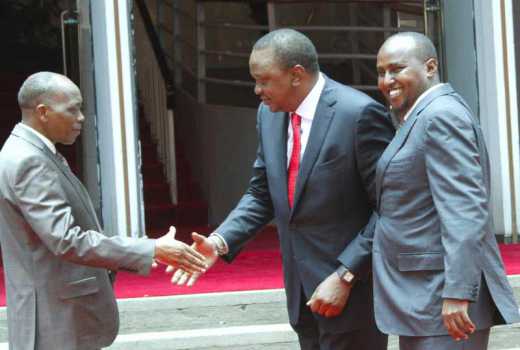×
The Standard e-Paper
Stay Informed, Even Offline

Political players were still counting gains and loses last night as the country came to terms with Friday's surprise deal between President Uhuru Kenyatta and NASA leader Raila Odinga.
With observers agreeing that the deal will drastically alter the political landscape, it was left to individual political players and their formations to find their place in the new scheme of things.